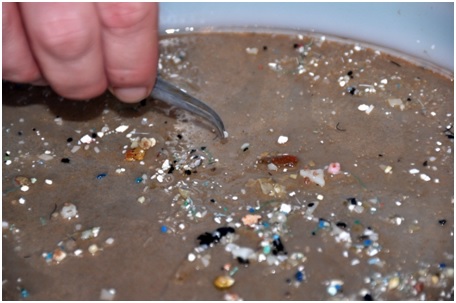Ocean Microplastics

The miniscule size of plastic particles
This past Tuesday evening a wonderful Ocean Conservationist came to Waynflete, by the name of Dr. Kara Lavender Law, to discuss ocean plastics. The main point of her argument was that it isn’t the big plastics that we need to worry but, but in fact the small, microplastics that people don’t usually notice. Ocean pollution is a massive issue on the rise on our planet and the large impact on the environment captures the attention of scientists and conservationists everywhere. The North Pacific Gyre was first discovered in the 1990s, and since then ocean microplastic issues have grasped the attention of hundreds. What the speaker on Tuesday informed us, however, is that the Garbage Patch is not exactly what we’ve been told. When one looks at the area that the North Pacific Garbage Patch is located in, it actually looks just like the ocean. This fact is actually even more pressing, because it shows that the trash is so tiny its virtually invisible. This makes fish and other animals eat more plastic without knowing, causing inability to get sufficient nutrients and digestive issues. Plastic also is a new substrate because of how prominent it has become, and this substrate is fantastic for detrimental toxins to bind to. Therefore, when fish or other animals consume the plastic, they are also consuming toxins which are incredibly hazardous to their welfare, and the toxins actually find their way to our bloodstream when we ingest the poisoned fish. Another major issue is when scientists try to remove plastic, or even register how much exists in the water column, high concentrations of plankton are captured in the net as well which majorly affects the ecosystem. Dr. Kara Lavender Law concluded that currently, its better to be conscious of the plastics being used now instead of removing the plastics in the ocean because the effect of removing plastics on plankton is so catastrophic.
An image showing the miniscule size of plastic particles




